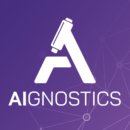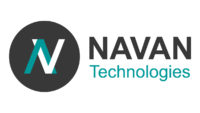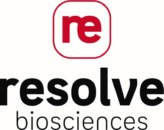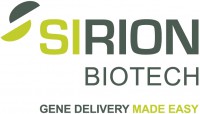Aignostics, a spin-off from Charité – Universitätsmedizin Berlin and the Berlin Institute of Health, is pioneering computational pathology for pharmaceutical research and diagnostics. Its proprietary "Explainable AI" platform draws on research from Fraunhofer Society, Charité, and TU Berlin to overcome the typical "black-box" problem of AI in pathology. Aignostics' focus lies on developing bespoke AI models for clinical trials and CDx development.
Belyntic
ExitModern therapeutic approaches face the challenge to combine efficacy, low undesired side effects and reasonable pricing. Therefore, drug substances become more and more complex, therapies become more personalized while overall life-cycle costs from drug discovery up to the manufacturing of the final therapeutic are on trial.
Peptides – or short proteins - represent a promising therapeutic class, and Belyntic’s PEC technology offers an innovative solution for their manufacturing. The linker-based approach enables parallel, efficient and highly selective purification and modification of chemically synthesized peptides. Belyntic offers kit products as well as cooperation projects and custom services for research institutions, custom peptide manufacturers as well as biotech and pharma companies.
ChromoTek
ExitChromoTek focuses on the discovery and development of innovative fluorescent nanoprobes derived from single-chain antibodies from Camelidae (Chromobodies) for applications in research and high-content screening.
Cytena
Exitcytena's single-cell printer is a unique device for separating, sorting and handling of single biological cells. For the first time this method enables an automated, separation of single cells with high viability and proof of clonality without cross-contamination risks.
denovoMATRIX develops and manufactures biomimetic coatings for the cultivation of human stem cells. Our focus is on enabling culture conditions for stem and primary cells closer to the natural conditions found in the body. Our products offer a biologically relevant solution, which is both chemically defined, and modular for adapting to specific applications. Our vision is to enable human biology in vitro, beginning with Life Science research and onwards to cell therapies of the future.
DNTOX GmbH was founded in March 2022 as a spin-off from the IUF - Leibniz Institute for Environmental Medicine Research and is based on the longstanding research work of Professor Dr. Ellen Fritsche, medical scientist and toxicologist at the IUF. The team of the founders Prof. Fritsche, the economist Silke Beaucamp, the biotechnologists Dr. Katharina Koch and Dr. Kristina Bartmann as well as the bioinformaticians Dr. Arif Dönmez and Prof. Axel Mosig could already be completed by three full-time employees.
DyNAbind is offering innovative drug discovery products and services based on its proprietary Dynamic DNA-Encoded Library (D-DEL) technology platform. With D-DEL, DyNAbind can simultaneously screen hundreds of millions of compounds against a target protein. Follow-up hit triage is also rapid, thanks to the Binding Profiler system for hit validation. Altogether, DyNAbind’s platform delivers higher-quality, more relevant medicinal chemistry starting points at about 10 times the speed of conventional approaches.
faCellitate develops patented polymeric surface coatings for plastic and glassware enabling 3-dimensional cell culture, amongst other uses. Initially, the technology was developed at the BASF research department for polymers. The company and team were formed at Chemovator during a nearly three year incubation period and spun-off end of 2021. During the period at Chemovator from BASF, the company turned the technology platform into a pipeline of high-tech applications and start building an international digital marketing platform.
faCellitate is also advancing its platform technology into other areas. Under the brand BIOINSTRUCT™, the company is applying its technology to modify polymer coated surfaces with peptides to create biospecific lab material surfaces for customers.
faCellitate has its offices in Mannheim in a startup incubator environment and its labs in Heidelberg.
KINAXO
ExitKINAXO supports pharmaceutical companies in the development of targeted drugs and predictive biomarkers for personalized healthcare.
Exit since Feb. 2011. Purchaser: Evotec AG
Lino Biotech
Exitlino Biotech AG was incorporated as a ETH Zurich spin-out in Zürich, Switzerland, in March 2020, and is venture backed by Roche Venture Fund, High-Tech Gründerfonds and several lifescience family offices. lino offers industry partners and researchers a unique way to study molecular interactions in living cells and crude biosystems.
Lipocalyx
ExitLipocalyx develops transfection reagents. Our Viromers® are polymers emulating a viral mechanism for cell entry. The company provides reagents and currently establishes services for pharmaceutical applications.
PEPperPRINT produces customized ultra-high density peptide microarrays and uses individualized peptide libraries for drug development, antibody characterization, and protein biomarker discovery.
PreComb Therapeutics AG is a privately held Swiss biotech company founded in 2018 by Jens M. Kelm, Peter Steiner and Olivier Mauti with the aim of developing technologies that bring precision medicine benefits to all cancer patients. PreComb is pioneering breakthrough technologies to directly test the drug response of individual cancer patients, based on patient-derived 3D microtumors. For the first time, a fully automated point-of-care solution for determining drug sensitivity or resistance directly in the clinic is being developed. This offers the unique ability to routinely test entire portfolios of cancer drugs and drug combinations in large-scale, making the technology a universal tool from drug discovery to guiding therapies.
PreOmics
ExitPreOmics develops and provides innovative technologies for customers around the world for mass spectrometry (MS) - based proteomics using cutting-edge technologies to support researchers in their protein analysis needs.
Resolve Biosciences is creating solutions which offer the power of Molecular Cartography enabling scientists to gain valuable insights at subcellular resolution, across vast numbers of biomolecules (RNA, DNA, proteins) to create three-dimensional maps of molecular activity in living cells.
Senostic is a diagnostics company developing a differential diagnostic test to detect multiple neurodegenerative diseases in a single test based on its proprietary SeedCylcer platform technology.
Signatope develops the next generation of protein biomarker assays using a novel type of mass spectrometry-based immunoassays.
SIGNATOPE (SIGNAture epiTOPE) immunoassays are capable of detecting and quantifying protein biomarkers in humans and all pharmacologically relevant model species. Antibodies comprising epitopes of 4 amino acids are the key reagents of SIGNATOPE's immunoassays. The short epitope allows us to establish quantitative assays for the same protein in different species and for isoforms of protein families. Even immunoassays for notoriously difficult proteins like drug transporters can be established while providing the speed and the sensitivity of an antibody-based method.
SIRION Biotech
ExitSIRION BIOTECH produces genetically modified cells and is technology provider in the area of viral vector systems. The specialist in RNAi technology distributes more than 100 products and services. A goal is to develop optimized cell systems for the optimized vaccine, antibody or protein production















